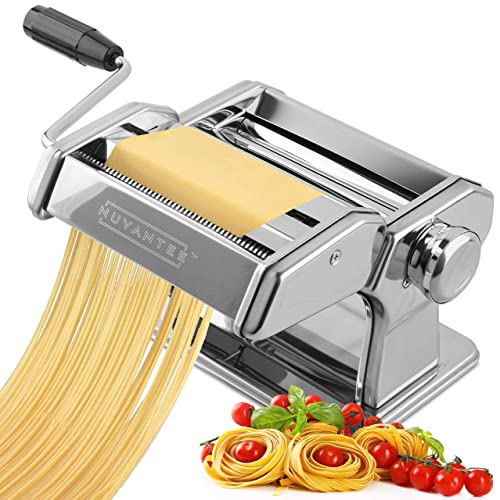What is the Average Lifespan of a Pasta Machine?
A pasta machine is a fundamental tool for pasta lovers and chefs alike. It allows you to make fresh pasta at home, producing various shapes and sizes. But like any other kitchen appliance, a pasta machine does not last forever. So, what is the average lifespan of a pasta machine? Let’s explore this topic in more detail.
Understanding the Lifespan of a Pasta Machine
The lifespan of a pasta machine can vary depending on several factors, including brand, usage, and maintenance. Generally, a well-built and properly cared-for pasta machine can last anywhere from 5 to 10 years. However, some higher-end models may be more durable and have a longer lifespan.
Factors That Affect the Lifespan
1. Quality of Materials: The quality of the materials used in the construction of a pasta machine plays a crucial role in its lifespan. Stainless steel machines tend to be more durable and long-lasting compared to plastic or aluminum ones.
2. Frequency of Use: The more frequently you use your pasta machine, the quicker it may wear out. If you only use it occasionally, following proper cleaning and storing practices, it will likely last longer.
3. Maintenance and Care: Proper maintenance and care are essential to ensure the longevity of your pasta machine. Regular cleaning, lubrication of moving parts, and avoiding excessive force or pressure are all factors that contribute to its lifespan.
4. Brand and Build Quality: While not always the case, reputable brands often produce pasta machines with better build quality and durability. Investing in a trusted brand may increase the chances of your machine lasting longer.
5. Type of Pasta Machine: There are various types of pasta machines available, including manual and electric models. Manual machines are generally considered to have a longer lifespan due to their simplicity and lack of electronic components that can fail over time.
Prolonging the Lifespan of Your Pasta Machine
1. Read the Manual: Always refer to the manufacturer’s instructions on how to properly use and care for your specific pasta machine. This will help you understand any specific maintenance requirements and avoid damaging the machine.
2. Clean Thoroughly after Use: It’s important to clean your pasta machine thoroughly after each use to remove any leftover dough or food particles. Use a dry brush or cloth to wipe away any excess residue.
3. Lubricate Moving Parts: Regularly lubricating the moving parts of your pasta machine, such as the rollers and gears, can help prevent friction and wear. Use a food-safe lubricant recommended by the manufacturer.
4. Store Properly: When not in use, store your pasta machine in a clean and dry place. Avoid exposing it to excessive heat or moisture, as these can cause damage to the machine over time.
5. Avoid Excessive Force: When using your pasta machine, avoid applying excessive force or pressure, as this can strain the machine’s components. Follow the manufacturer’s instructions for rolling and shaping the dough to avoid overloading the machine.
Know When It’s Time for Replacement
Even with proper care and maintenance, there may come a time when your pasta machine needs to be replaced. Here are some signs that indicate it may be time for a new one:
1. Excessive Wear and Tear: If your pasta machine shows significant signs of wear, such as chipped or worn-out rollers, it may be time to invest in a new one. This is especially true if it affects the quality of the pasta you produce.
2. Malfunctions: If your pasta machine starts to malfunction frequently, such as getting stuck or not rolling the dough evenly, it may be a clear indication that it’s time for a replacement.
3. Safety Concerns: If you notice any safety concerns, such as loose or broken parts, it’s important to prioritize your own safety and consider investing in a new pasta machine.
4. Outdated Model: If your current pasta machine is an outdated model, it may lack modern features and improvements seen in newer models. Upgrading to a newer version can enhance your pasta-making experience.
The average lifespan of a pasta machine is around 5 to 10 years, depending on factors such as quality, usage, and maintenance. By following proper care and maintenance practices, you can prolong the lifespan of your pasta machine and ensure it produces delicious homemade pasta for years to come.






